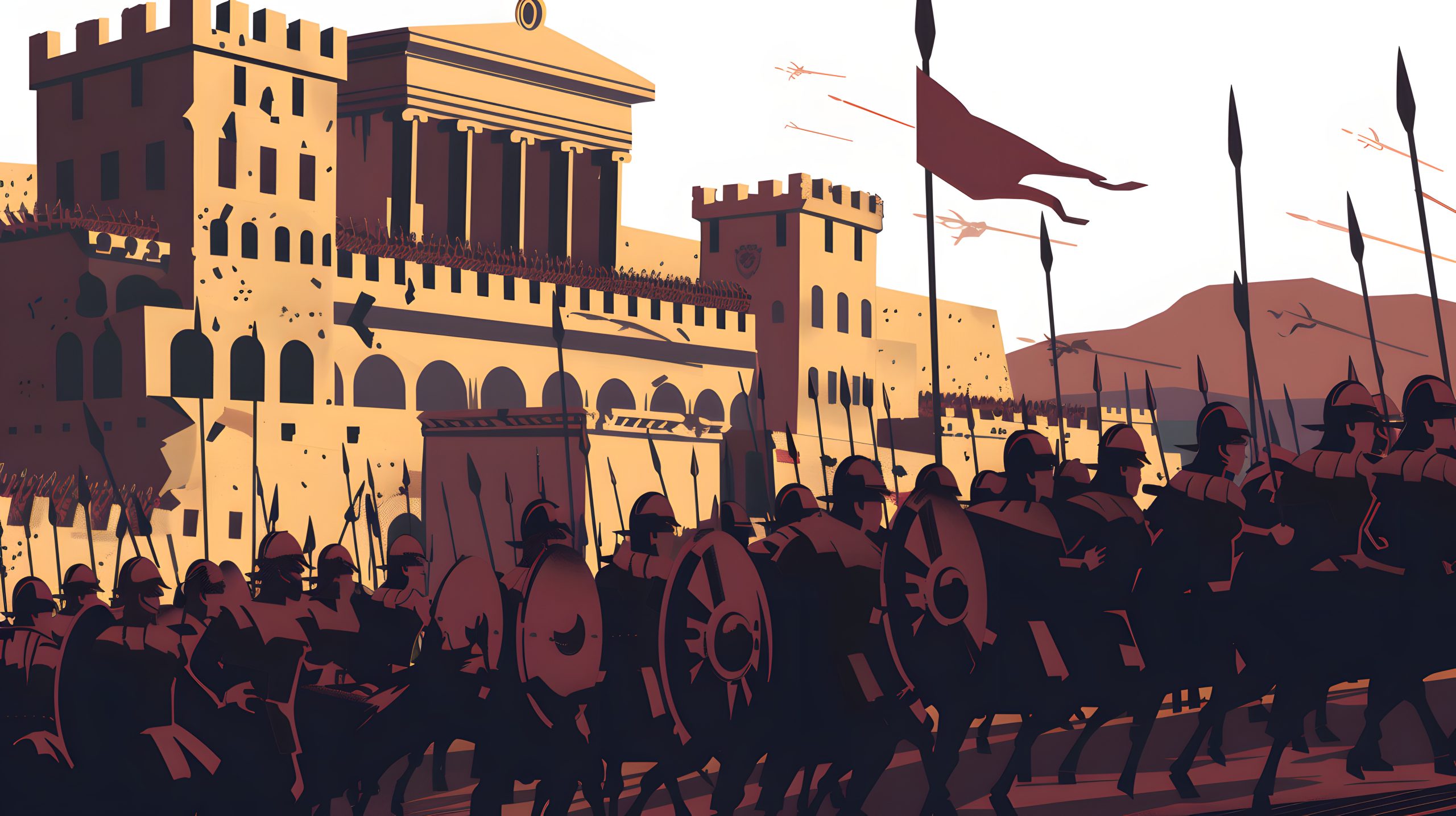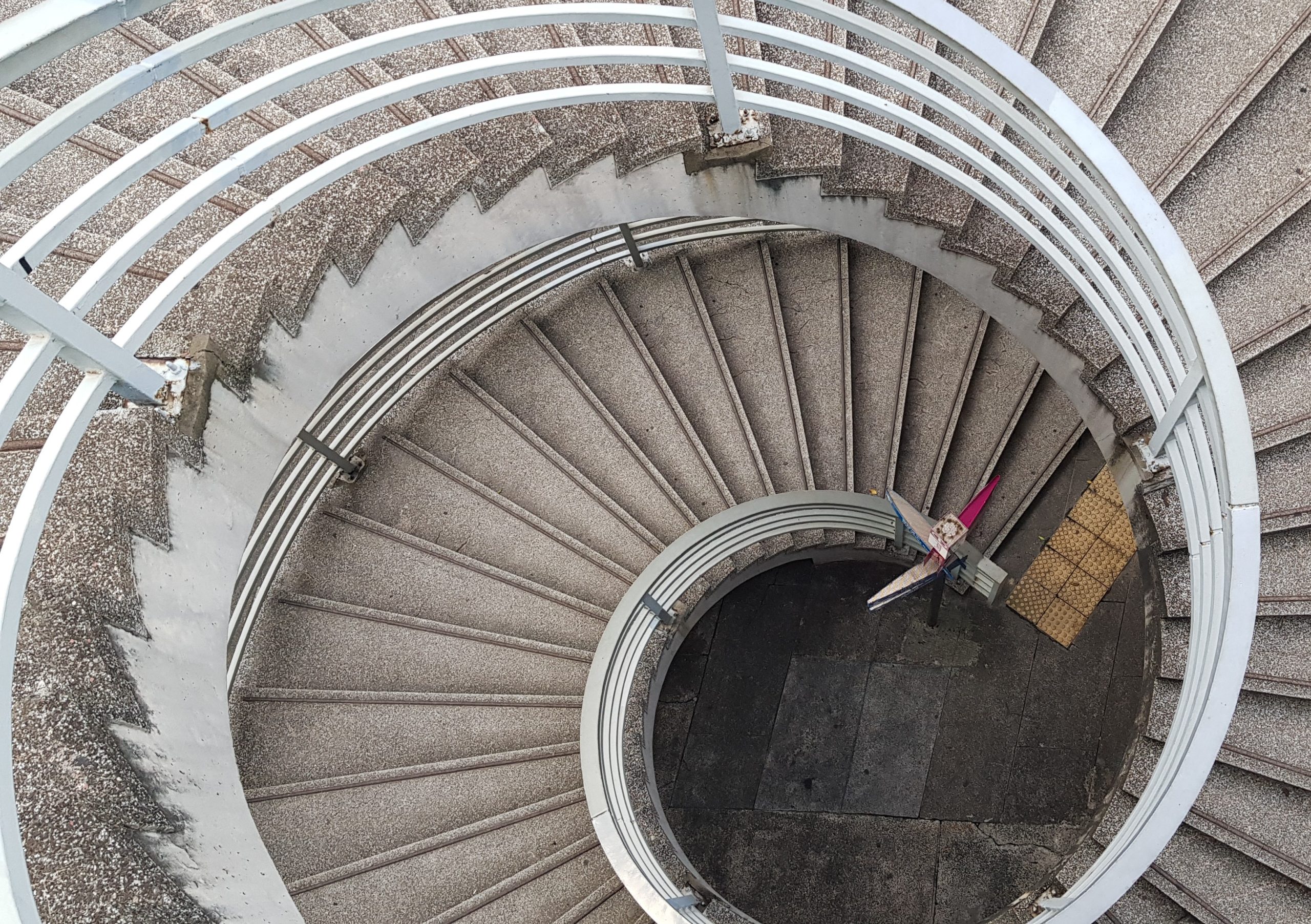The Three Weeks is a period of intensifying mourning that is observed in the summer. In Hebrew, this period is known as bein hametzarim – literally, “between the straits” (a phrase from Eicha 1:3) – because the Three Weeks are bookended by fasts commemorating national tragedies: the fast of 17 Tammuz at the beginning and Tisha b’Av at the end. The mourning period can be broken down into the following stages: 17 Tammuz, the Three Weeks, the Nine Days, and Tisha b’Av. (All of these are actually part of the Three Weeks.) Let’s look at them stage by stage.
What is the fast of 17 Tammuz?
17 Tammuz – pronounced “Shiva Asar b’Tammuz” in Hebrew – is a fast that commemorates several national disasters, kicking off the Three Weeks. Among the tragedies that occurred on this date (see tractate Taanis 28b):
 Moses broke the first set of tablets as a response to the sin of the Golden Calf;
Moses broke the first set of tablets as a response to the sin of the Golden Calf;- Sacrifices in the First Temple had to be suspended because of a shortage of animals, caused by the siege of Jerusalem;
- Menashe, an evil king, installed an idol in the First Temple;
- The Romans prohibited sacrifices to be offered in the Second Temple;
- Apostomus, a Roman officer, publicly burned a Torah scroll;
- The walls of Jerusalem were breached, ultimately resulting in the destruction of the Second Temple.
Many more disasters occurred on this date throughout the centuries. Just to cite one example, on this date in 1239, Pope Gregory IX ordered all copies of the Talmud and other Jewish books confiscated for burning.
17 Tammuz was already a fast in Biblical times. The Book of Zechariah (chapter 8), which takes place after the destruction of the First Temple, refers to it as “The Fast of the Fourth Month.”
How is the fast of 17 Tammuz observed?
 Shiva Asar b’Tammuz is a fast that, like most fasts, lasts from daybreak until nightfall (as opposed to starting at sunset the night before). Women who are pregnant or nursing, as well as people who are legitimately ill, may eat, but they should refrain from “luxury” foods (i.e., do not “let them eat cake!”). Children need not fast, though those who are old enough to understand should also refrain from treats on 17 Tammuz.
Shiva Asar b’Tammuz is a fast that, like most fasts, lasts from daybreak until nightfall (as opposed to starting at sunset the night before). Women who are pregnant or nursing, as well as people who are legitimately ill, may eat, but they should refrain from “luxury” foods (i.e., do not “let them eat cake!”). Children need not fast, though those who are old enough to understand should also refrain from treats on 17 Tammuz.
The fast of 17 Tammuz is the first day of the Three Weeks, so all of the restrictions of the Three Weeks are also in effect.
How are the Three Weeks observed?
 Some mourning practices are observed the entire period of the Three Weeks, with additional observances being added later in this time. The mourning customs observed the whole Three Weeks include:
Some mourning practices are observed the entire period of the Three Weeks, with additional observances being added later in this time. The mourning customs observed the whole Three Weeks include:
- Not holding weddings;
- Not listening to music;
- Not purchasing new clothes;
- Not cutting hair or shaving;
- Not holding or attending parties or other public gatherings.
A little more detail on the Three Weeks restrictions:
While we don’t hold weddings or parties at this time, a music-free gathering to celebrate an engagement is permitted prior to the Nine Days.
One may not play a musical instrument for enjoyment, but one may do so for practice or in a professional capacity.
Some people differentiate between listening to live and recorded music, though most authorities consider this an artificial distinction; consult your own rabbi for guidance in this matter.
The reason we don’t purchase new clothing is because we don’t do things on which one would recite the bracha of Shehechiyanu. This would include other major purchases (a new car, a new home, etc.).
The restriction on purchasing new clothes only applies to “major” garments. “Minor” garments like socks and underwear, on which Shehechiyanu would not be recited, may be purchased prior to the Nine Days.
The practice not to shave refers specifically to men shaving their faces; women may shave their body hair as per usual.
While the fast of 17 Tammuz only begins at daybreak, the Three Weeks restrictions take effect at sundown the night before.
The restriction on shaving and haircuts reflects the normative practice of Ashkenazic Jewry. The custom of many Sephardic communities is to allow shaving and haircuts until the week in which Tisha b'Av falls.
What about Shabbos?
 As a general rule, laws of mourning are suspended on Shabbos. If Shiva Asar b’Tammuz falls on Shabbos, the fast is postponed until Sunday. Similarly, on Shabbos during the Three Weeks, one may recite the bracha of Shehechiyanu (such as on a new fruit). The suspension of mourning practices also applies to the Nine Days (see below).
As a general rule, laws of mourning are suspended on Shabbos. If Shiva Asar b’Tammuz falls on Shabbos, the fast is postponed until Sunday. Similarly, on Shabbos during the Three Weeks, one may recite the bracha of Shehechiyanu (such as on a new fruit). The suspension of mourning practices also applies to the Nine Days (see below).
What are the Nine Days?
The last nine days of the Three Weeks are the first nine days of the month of Av. The Talmud tells us (Taanis 26b), “When the month of Av enters, we decrease our joy.” Accordingly, the mourning practices intensify as of the first of Av.
How are the Nine Days observed?
 The additional mourning practices observed during the Nine Days include:
The additional mourning practices observed during the Nine Days include:
- Not eating meat;
- Not drinking wine;
- Not wearing freshly laundered clothes;
- Not bathing for pleasure (which includes swimming);
- Not engaging in home improvements;
- Avoiding court cases (as much as one is able).
A little more detail on the Three Weeks restrictions:
Meat and wine may be consumed on Shabbos, as well as at a seudas mitzvah, a meal celebrating a mitzvah (for example, a bris milah).
Freshly laundered clothing may be worn on Shabbos.
If one has small children, who constantly get dirty, their clothing may be laundered.
While we don’t bathe for pleasure, one may do so in cool water for reasons of hygiene.
One may bathe in warm water in preparation for Shabbos.
The Nine Days restrictions remain in effect until midday of the tenth of Av (i.e., the day after Tisha b’Av).
While our practice is to observe these intensified mourning customs starting from the first of Av, the Mishnah (Taanis 4:7) refers to them as practices of the week in which Tisha b’Av falls (shavua she’chal bo). Accordingly, the practice of many Sephardic communities is to observe these practices only during that week.
What is Tisha b’Av?
 Tisha b’Av, the ninth day of the month of Av, is the culmination of the Three Weeks and the Nine Days. It commemorates more national tragedies – including the destruction of both Temples – and is the time of the most intense mourning customs. Tisha b’Av is such a significant date on the Jewish calendar, and it has so many unique details, that it calls for an article all its own.
Tisha b’Av, the ninth day of the month of Av, is the culmination of the Three Weeks and the Nine Days. It commemorates more national tragedies – including the destruction of both Temples – and is the time of the most intense mourning customs. Tisha b’Av is such a significant date on the Jewish calendar, and it has so many unique details, that it calls for an article all its own.
What should be our takeaway?
While the main theme of the Three Weeks is mourning, we should also use this time for introspection and self-improvement. Jerusalem and the Temples were destroyed because of the people’s misdeeds. Each of us should ask ourselves how we can improve, helping to merit hastening the Third Temple.
Because of our long exile, we are so far removed from the Temple that we don’t appreciate what it is we’re missing. Accordingly, we’re not emotionally invested in mourning for something we never knew. It behooves each of us to learn more about the importance of proximity to God, which the Temple afforded. As the Talmud teaches (Taanis 30b), one who mourns the destruction of Jerusalem and the Temple will merit to see the future joy of their rebuilding.













